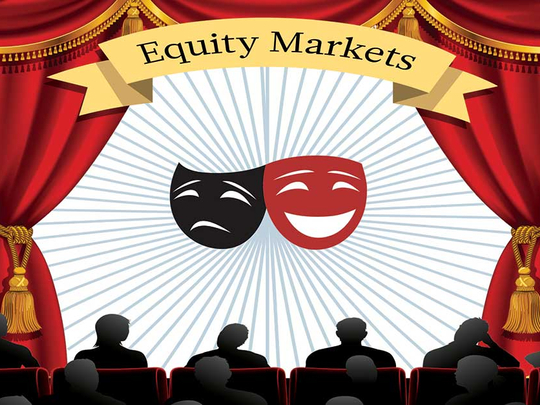
Equity markets are theatres of capitalism. At the New York Stock Exchange, the boss of a big business that is floating gets to ring the opening bell as trading starts.
Distraught investors in Shanghai stocks are a visual shorthand for the media when reporting Chinese economic wobbles. In the UK, the share price performance of consumer-facing companies is watched intently, even as rises and falls in bond prices remain a niche interest.
But the sound and fury surrounding quoted shares signifies less than one might imagine. Equities are on the back foot. Private business owners must therefore dispassionately consider floating their companies, however enthusiastically investment bankers pitch the idea.
Fees of up to 7 per cent in the US and 3 per cent in the UK encourage professional advisers to downplay the disadvantages.
Public equities have been undergoing a long-run contraction. In the US, the value of shares repurchased by corporates through buy-backs has consistently exceeded the value of issuance. The running total, according to statistics from Dealogic, was $1.9 trillion between 2010 and the year to date.
Evidence of this for the UK is a little harder to extract. But when the value of shares removed from the market through takeovers is added to the sum, it is evident that in most years, more equity is retired by value than is issued.
“The gold base is growing faster than the equity base,” remarks Robert Buckland, global equity strategist at Citi, who coined the word “de-equitisation” in the early Noughties to describe the imbalance between issuance and cancellation.
The phenomenon raises an existential problem for professionals whose livelihood depends on equities. What is the point of a form of capital that appears to be in permanent decline?
From the point of view of many chief financial officers, shares simply aren’t very efficient. In most developed economies, interest is paid out before tax, while dividends are deducted afterwards.
Leverage, if kept at sensible levels, should impose less of a strain than a “progressive” dividend policy — meaning payouts that rise steadily year upon year.
Shareholders, meanwhile, clamour for the buy-backs that shrink companies’ equity bases. Critics say these purchases are too often conducted at market peaks — few businesses have the discipline of UK retailer Next, which imposes strict hurdle rates on its buy-backs.
The other truism is that stock repurchases raise earnings artificially, without contributing to underlying growth as capital expenditure might.
The buy-back trend has been fuelled in recent years by the ability of corporates to raise debt at rock-bottom interest rates. Stronger US growth means the era of cheap money could be grinding to an end, albeit with that process prolonged by China’s economic woes.
The question is whether “the cult of the equity”, as it was termed by Alastair Ross Goobey, an influential British investor, will then be in a position to make a comeback.
There is a “supplementary”, as analysts describe one more question than they are officially allowed to ask in an earnings call with a chief executive. If equities enjoy a revival as a form of capital among quoted businesses, what are the incentives for privately-held companies to abandon that status?
The theatricality of equities has its downsides; quoted shares are volatile. When a business is struggling, they fall and investors may kick out the chief executive.
But the hive mind of the market gives a solidity to pricing that transactions in unquoted shares inevitably lack. Unless big synergies are available, acquirers typically buy private companies at a 20-30 per cent discount to prices for quoted businesses.
Doing business can be easier for a big quoted company than a big private one. Suppliers, customers and debt investors are reassured by the scrutiny and standards imposed by a listing.
The rarely used but useful corollary of recruiting a coachload of rear-seat drivers is that shareholders can be called on for a cash injection with very few strings attached in an emergency.
Chief executives also seem to like the attention that comes with a stock market quote — not that such people are egotistical. Heaven forbid.
Bosses of Silicon Valley tech companies, such as Travis Kalanick at Uber, can eat their cake and still have it. They need not float for their every move to be pored over by fanboys and geek girls. They can raise equity at eye-watering multiples from venture capitalists.
“Equity is supposed to be for people with romantic ideals and long-term time horizons,” says Buckland at Citi, “but financing is taking place off-market in Silicon Valley.”
If equity has any real social value, it is when it has an appetite for the new, the untested, project that is seen as more likely to go horribly wrong rather than stunningly right — except when viewed through the rose-tinted goggles of the entrepreneur.
If equity has been losing ground to debt, it is partly because stock markets have become too hidebound, too yield-driven and too intolerant of mavericks.
But an equalisation of the tax treatment of debt and equity is needed to help revive the cult of equity, too.
— Financial Times












